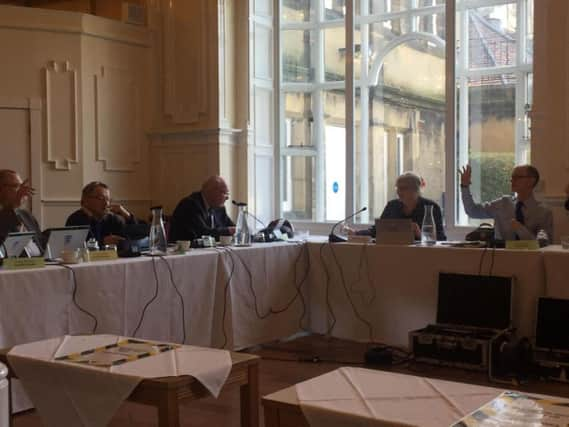Harrogate stroke victims to be taken to York or Leeds, starting next month


The move received widespread support from members of the Harrogate and Knaresborough Area Constituency Committee at their March 21 meeting.
In updating councillors on the change, county's democratic services and scrutiny manager Daniel Harry said only 300 hyper acute stroke patients had needed treatment in Harrogate over a year, well under the clinical minimum of 600.
Advertisement
Hide AdAdvertisement
Hide AdCouncillors also heard that the hyper acute service currently provided at Harrogate District Hospital has also been impacted by workforce shortages and has relied on one stroke consultant.
“The rationale is that that assessment can be done there (in Leeds or York) on a timely basis, (and the patient can) access all sort of cutting-edge interventions," Mr Harry said.
He added that the county had "received assurances" from the North Yorkshire Ambulance Service that they could accommodate the additional trips between Harrogate and York or Leeds.
The new system will see about 80 patients a year transferred to York, and 210 to Leeds.
Advertisement
Hide AdAdvertisement
Hide AdThey will then be transferred back to Harrogate hospital, usually within 72 hours, to receive rehab care there.
It comes after a proposal by Harrogate and Rural District ClinicalCommissioning Group and Harrogate and District NHS Foundation Trust to move the services was supported by the county's health scrutiny committee in December.
County's health scrutiny chairman, Jim Clark, revealed he had suffered a stroke himself two years ago and could attest to the relative under-use of the service in Harrogate.
"I very much support this change, having suffered a stroke myself almost two years ago to the day...there's been wide consultation on this at the West Yorkshire and Harrogate level (and I fully support it) provided we've got the ambulance capacity,” he said.
Advertisement
Hide AdAdvertisement
Hide AdFellow Councillor David Goode asked that ambulance trips between Harrogate and the cities be monitored and measured, given his own experiences with the system as well.
"My wife had heart attack 18 months ago and she was taken to Leeds...it seemed like an excellent approach," he said.
"One concern though with that approach is that time is critical...and ambulances getting into Leeds at peak traffic times do struggle and that concerns me for the future."
The committee will now monitor the change over the new system two years.
Lachlan Leeming, Local Democracy Reporting Service